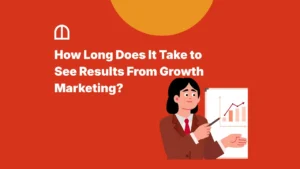One of the busiest shopping seasons of the year is the holiday season, and your website must be positioned to benefit from the rush. But, with so many businesses competing for attention, how do you stand out? The answer is SEO marketing.
This is a way you optimize your website so that holiday shoppers can quickly find you online. Let’s look at some practical tips for using SEO to attract more holiday shoppers.
What is SEO marketing?
Search engine optimization (SEO) is an online marketing strategy that aims to increase a website’s visibility on search engine results pages (SERP). Some of the techniques used are keyword optimization, writing high-quality content, building links, and making the site faster. You must also ensure that your website works well on mobile devices.

Why is SEO Marketing Important During the Holiday?
Search engines are the main source of website discovery for users. According to a survey, 59% of shoppers use Google Search to learn more about an item they want to buy in-store or online. Also, about 50% of shoppers use Google to find new goods during this period.
A significant aspect of a successful website is its ability to attract users, regardless of whether you produce commercial products or informative content.
With that in mind, e-commerce SEO is an essential component of ensuring that your site appears early and frequently in search engine results for keywords related to your business. Regardless of how impressive your website is, your potential visitors are unlikely to discover you if your search rankings are low.
How to Use SEO Marketing to Attract Holiday Shoppers
You can reach shoppers exactly when they’re searching for what you offer by making sure your website is optimized for holiday-related searches. If you have the right SEO strategies, your business will stand out during the biggest shopping season, regardless of size. Now let’s talk about how you can use SEO to attract holiday shoppers to your website and make more sales!
1. Start with Holiday-Specific Keywords
What are your customers really looking for during the holidays? It can be phrases like “best gifts for mom,” “Black Friday deals,” or “Christmas decorations online.” You can find out the exact words and sentences people are typing into search engines with help from tools like Google Keyword Planner and Ubersuggest.
Once you’ve found your keywords, include them naturally in your product page and descriptions, blog, and their meta tags. There’s no keyword stuffing—just a casual reference where it makes sense.
Pro tip: People often overlook long-tail keywords like “affordable gifts for dads under $50”. They are not only less competitive, but they also attract customers who know exactly what they want. Therefore, instead of concentrating on broad terms like “gifts,” it would be beneficial to consider specific, seasonal keywords that your audience can search for.
- “Best gifts under $50 for Christmas”
- “Unique holiday gifts for teachers”
- “Last-minute gift ideas for dads”
Using these keywords can have a significant effect. Just be sure to incorporate them naturally into your content—whether it’s on your product pages, in a blog post, or even on your landing pages.
2. Create Holiday-Themed Content
Content remains paramount, particularly during the festive season! This is the ideal time to connect with your audience by publishing blog posts, videos, or infographics that are relevant to their needs this season.
Consider writing a humorous blog post that relates to your niche. Titles like “Top 10 Gifts for Tech Lovers This Holiday Season” or “How to Host the Perfect Holiday Party.” If you have a passion for making videos, you can also try creating how-to videos. Examples are a wrapping guide or a holiday recipe that features the products you own.
You can also create seasonal guides to inspire your audience, such as “Holiday Décor Ideas” that feature items from your business. Not only will this type of content capture your audience’s interest, but it will also make search engines pick up your website, resulting in additional visitors.
3. Optimize Your Website for Mobile Users

Here’s a fun fact: a large portion of holiday shopping takes place on mobile devices. That means if your website isn’t mobile-friendly, you’re essentially losing visitors and money.
Begin by ensuring that your site loads quickly, no one likes waiting. Keep the navigation simple so that customers can find what they need with a few touches.
Use responsive design to ensure that your website appears great on any screen, including smartphones, and tablets.
Oh, and here’s the best part: Google loves mobile-friendly websites. In fact, it gives them priority in search rankings. Not only will your visitors thank you, but so will your SEO.
4. Leverage Local SEO for Holiday Shoppers
Do you own a physical store? Local SEO has the potential to effectively attract holiday shoppers to your store. Here’s how you can make it work:
- Keep your Google Business Profile up to date! Make sure to include your holiday hours, any special promos, and festive photographs to create the perfect atmosphere. A cheerful window picture can work wonders!
- Localized Keywords: Include location-specific keywords like “holiday gifts in [city name]” on your website.
- Ask for Reviews: Are your customers happy? Don’t be shy—ask them to write a review on Google, Yelp, etc. A positive review could be the factor that convinces a potential customer to choose your business over competitors.

Never forget that shoppers often search for local options like “toy stores near me” or “last-minute Christmas gifts. Avoid making it difficult for them to find and love your products during the holidays.
5. Use Seasonal Meta Descriptions and Titles
Why not make your website’s meta titles and descriptions truly stand out? Consider them the first impressions you’re creating with potential customers. A little festive style can really make a difference!
How about you switch it up a bit? Instead of just using, “Shop for Handmade Jewelry,” you could make it more engaging. How about this: “Holiday Sale: Gorgeous Handmade Jewelry—Ideal Gifts for Everyone You Know!
This little change does not only make your page feel friendlier, but it can also give your click-through rates a good lift. When you’re updating your meta descriptions, make sure to keep it fun, exciting, and in tune with the season. Honestly, you will get people’s attention!
6. Highlight Holiday Promotions and Urgency
Let’s face it: everyone loves a good deal, especially during the holiday season. With the right SEO marketing strategy, you can make your discounts unbeatable. Try utilizing noticeable phrases such as:
- “Limited-time holiday sale—don’t miss out!”
- “20% off Christmas decorations—sale ends soon!”
- “Only 5 left in stock—grab yours now for holiday delivery!”
These titles don’t only attract your audience’s attention, but they also encourage speedy decisions. One doesn’t want to miss the best holiday deal, right? So, go ahead and emphasize those deals and watch the clicks (and revenue) go up!
7. Keep an Eye on Your Progress and Adapt

SEO is a continuous process that requires constant attention. If you want to see how effective your efforts are, use tools like Semrush and Google Analytics. Always monitor your website’s traffic, keyword performance, and bounce rates. Remember to let data drive your SEO strategy.
Do not be afraid to make changes if a certain keyword or page is not performing as well as you had thought. It’s important to keep learning and getting better. Don’t forget that the holidays go by quickly, so being adaptable and quick to act can make all the difference!
Frequently Asked Questions About SEO Marketing
1. What is on-page SEO?
On-page SEO is the optimization of individual web pages to improve their ranking. On-page SEO includes optimization of elements like meta tags, headings, URL structure, internal linking, etc.
2. What is off-page SEO?
Off-page SEO involves activities outside your website that impact its ranking. This includes building backlinks, social media engagement, and influencer outreach to increase your site’s authority.
3. What are backlinks, and why do they matter?
Backlinks are links from other websites to yours. They signal to search engines that your website is credible and trustworthy, helping improve your ranking. Quality backlinks from authoritative sources are more valuable than quantity.
4. How do I measure SEO success?
Key metrics include:
- Organic traffic growth
- Keyword rankings
- Conversion rates
- Bounce rates
- Domain authority Regular reporting ensures you stay on track and make data-driven decisions.
Final Thoughts
Search engine optimization during the holidays involves engaging with your target audience when they’re most likely to shop. By optimizing your site with festive keywords, generating engaging content, and focusing on user experience, you can attract holiday shoppers and keep them returning for more.
Now you can apply some SEO magic to your website, and prepare to enjoy a season of record-breaking sales.
My name is Omolola, I am a dedicated Content Writer at Techdella. I excel in simplifying complex procedures and keeping audiences informed with the latest trends. With a passion for staying updated in the fast-paced digital world, I spend considerable time online to ensure my content remains relevant and engaging.
Get it in your inbox
One email a week. Real startup marketing insights — no filler.
Join 1,400+ founders. Unsubscribe anytime.
You're in!
Thanks for subscribing. Your first issue will arrive shortly.



